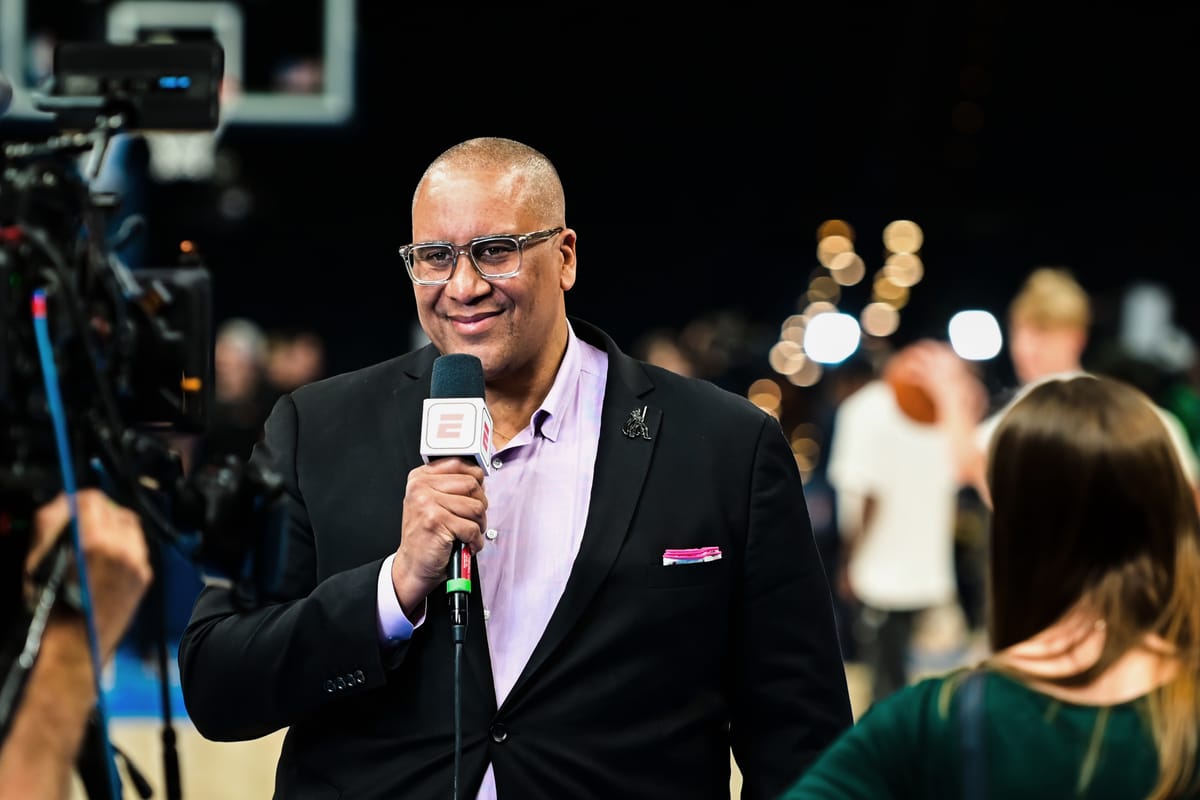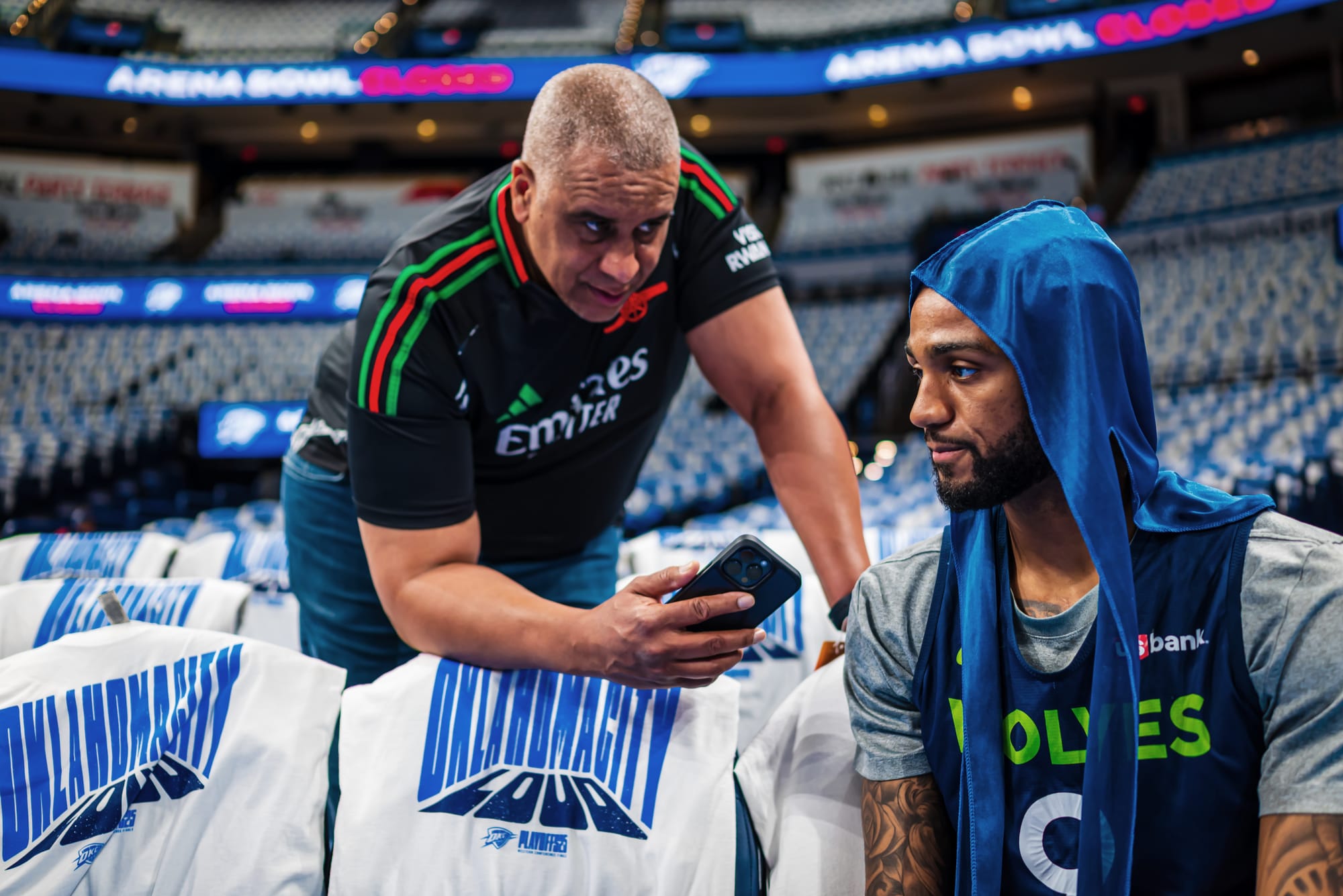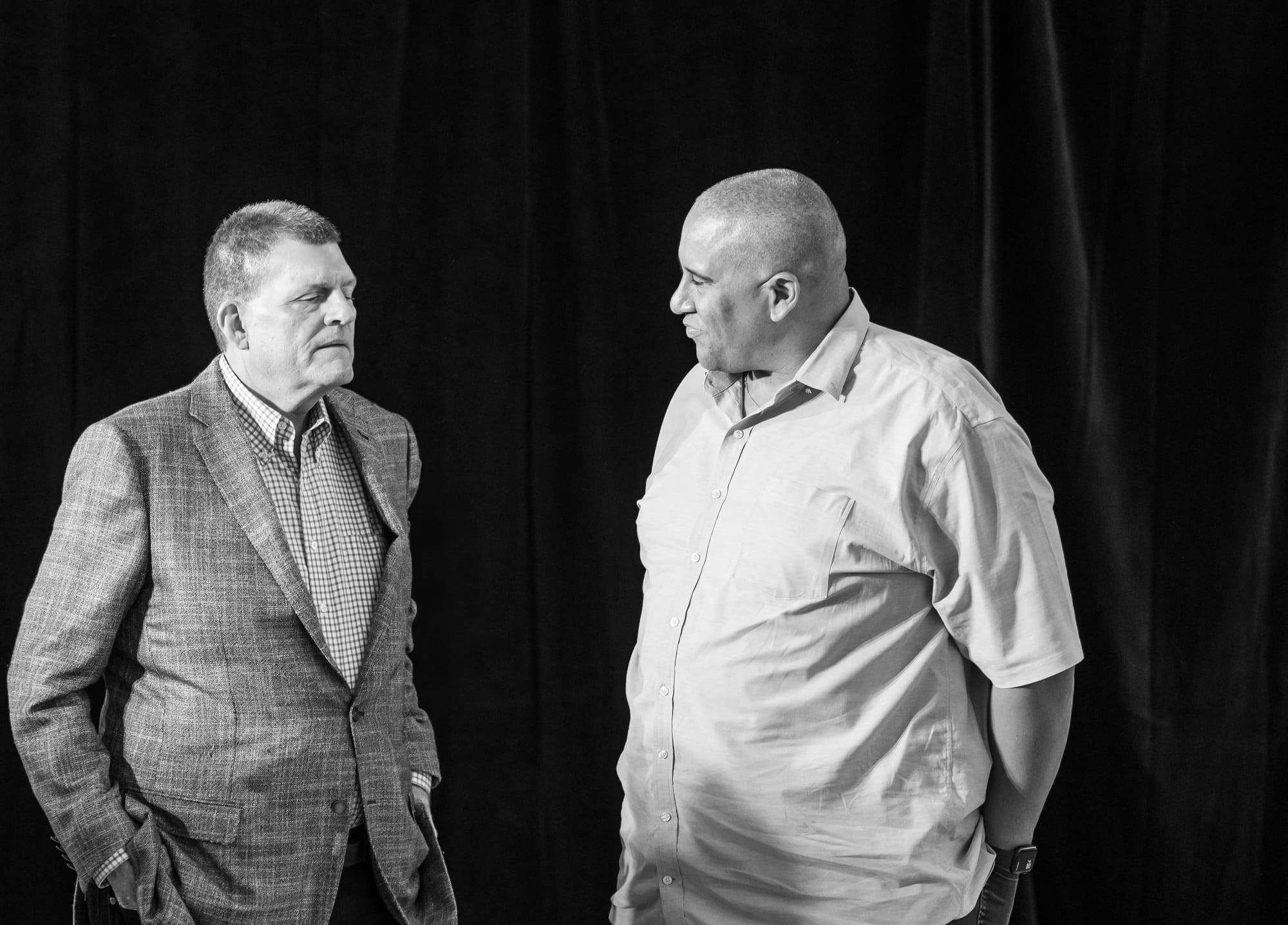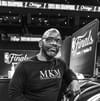
When Marc Spears made the long trek to Oklahoma for the first time, he had no idea what was in store for him. Growing up in California and attending college at San Jose State University, he was a West Coast kid through and through.
However, Spears’ calling to write about basketball was stronger than any trepidations he may have had when, while interning at the Dallas Morning News in 1995, a co-worker gave him some sage advice.
“Three-quarters of the way through the internship, the only job offer I had was at the Fort Worth Star-Telegram as a part-timer covering high schools,” Spears says. “We had a writer at the Dallas Morning Newscovering college sports. All I remember is the dude’s nickname was like ‘Rabbit.’ I was talking to him one day, telling him I was looking for a job. And he’s like, ‘The Tulsa World has a job covering Arkansas’ football and basketball teams. You should apply for that.’”
Spears took Rabbit’s advice and applied for the position, and landed the gig. That ended up being his first job in a long list of professional accomplishments that now sees him as a Senior Writer at ESPN and Andscape.
After becoming just the fourth recipient of the Curt Gowdy Media Award in print for outstanding contributions to basketball, Spears was inducted into the Naismith Basketball Hall of Fame in 2023 despite having never played professional basketball. He also received an honorary doctorate from Langston University, co-wrote the book The Spencer Haywood Rule, created a talk show on Hulu called “The Conversations Project” and even became a wine ambassador for Kendall Jackson Wines.
At 53 years old, Spears is living a life he could never have imagined when his dad gave him a subscription to Sports Illustrated in 1984.
“I’m very blessed to be where I am, and hopefully I can be, you know, working for ESPN and Andscape as long as I can,” Spears says. “They give me a lot of leeway to just do me, to write about African Americans in basketball, culture in basketball, the races in basketball, women in basketball. I’ve written a lot about women in the sport. You dream of other things, but I’m good. I’m very proud and happy to be where I am.”
None of this life was guaranteed three decades ago when Spears decided to transplant to Tulsa to work for the World. He described it as a decisive moment in his career.
“I think it was the best thing because I wasn’t ready,” Spears says. “I tell young journalists it’s like everybody wants to go to the major leagues in the beginning. Go to a place where you’re nurtured. And if you make a mistake, it’s not the end of the world.”
Spears, who was back in Oklahoma 30 years later covering the 2025 NBA Finals, recalled just how difficult the transition was for him.
“It was basically covering Arkansas football and basketball, commuting from Tulsa to Fayetteville when I needed to. It [the pay] was $19,000 before taxes,” Spears says. “I was struggling financially during those two years to make ends meet. But I figured it out. If I could go back, I probably would’ve gotten food stamps, because it was that bad.”

But Spears didn’t quit and rush back home to California where he would be more comfortable. He had bigger goals, and he saw the opportunities that being in Tulsa at that time allotted him.
“I was thinking long term, not short term,” he says. “And I was right out of college. I’m covering Arkansas football and basketball. I’m covering Nolan Richardson. They just went to two Final Fours. The football team was actually pretty good; they made it to the SEC Championship in ’95. For me to get a job covering Arkansas, covering the SEC right out of college was incredible. The money, even though it was a struggle, was a beautiful sacrifice.”
It was also a learning ground that the young, confident, sometimes brash Spears had to endure. It wasn’t until he got to Tulsa that he learned what it took to be a sportswriter at a major publication … including a lot of driving between his home base and the site of his beat in Fayetteville.
“I remember it was important for me to gas my car up, make sure my car was all right, because I was—to be completely honest, I heard there were some KKK people in between those two places,” Spears said. “So, I would have to drive home late at night sometimes, and I would just be very cognizant of making sure my car was all right. I was alert coming home after a lot of the basketball games. But even then, it was a great experience covering the SEC.”
While worrying about whether he was going to get pulled over by the KKK was an issue, Spears’ biggest fear was that he would get fired. His first few months at the World showed him he had a lot to learn.
“I was getting reprimanded for my game stories not being the best,” Spears says. “They never really taught me how to write game stories in college, and [I was] reprimanded for my work not being cleaner. I think at that time, maybe I had an elevated level of interviewing skills, people skills, but my writing needed a lot of work. To be quite honest, I was struggling.”
However, instead of jettisoning Spears, one person saw some talent and decided to help.
“There was an editor (Bob Colvin), a white man who had one arm, and for some reason, he wanted to help me,” Spears said. “He ended up having me come in once a week, and we would look at my raw copy. And he would talk me through how to write this better. He taught me how to write stories better, work on deadlines better. And after about three or four months, he’s like, ‘You’re good.’”
The relationship with Colvin taught Spears more than just how to be a better writer: “It kind of really reinforced in me that even though I was in the South and I’m like the only Black male there [at the Tulsa newspaper], in a town where they had the race riots, where a lot of times I felt like people were looking at me funny, when I went to work, this man put his love into me,” Spears says. “This white man put his love into me. And I don’t know if I would have ended up having the success I had if it wasn’t for him.”

Even after Spears left Tulsa in 1997 and went on to work in cities such as Los Angeles, Louisville, Denver and Boston, he never forgot what Colvin did for him. So much so that on one of the biggest days of his career, he made sure the former editor had a prime seat.
“When I got my honorary doctorate from Langston, during my speech, I gave him a shout out,” Spears recalls. “He came, and I had him sit in the VIP section. It was funny because it kind of flipped; he was like the only white man there. He was with his lady, and they were probably the only two white people at the whole thing. But he was so proud of me.”
Spears made the most of the opportunity and platform Tulsa provided him in those early years. Whether he is in South Africa writing about the importance of Basketball Africa League or in Oklahoma detailing the rise and fall of former NBA star Michael Ray Richardson, he still relishes the life he has created.
“I still don’t get tired of it, man. I’m still infatuated with the game and the history of the game, and so honored to be a part of it,” Spears says. “Being in the Hall of Fame and to represent ESPN covering basketball has truly changed my life. It’s allowed me to see the world. I’ve been to like 20 different countries. I’m super blessed to see the history of the game and know I’m part of that history.”
Which means Tulsa is, as well.

